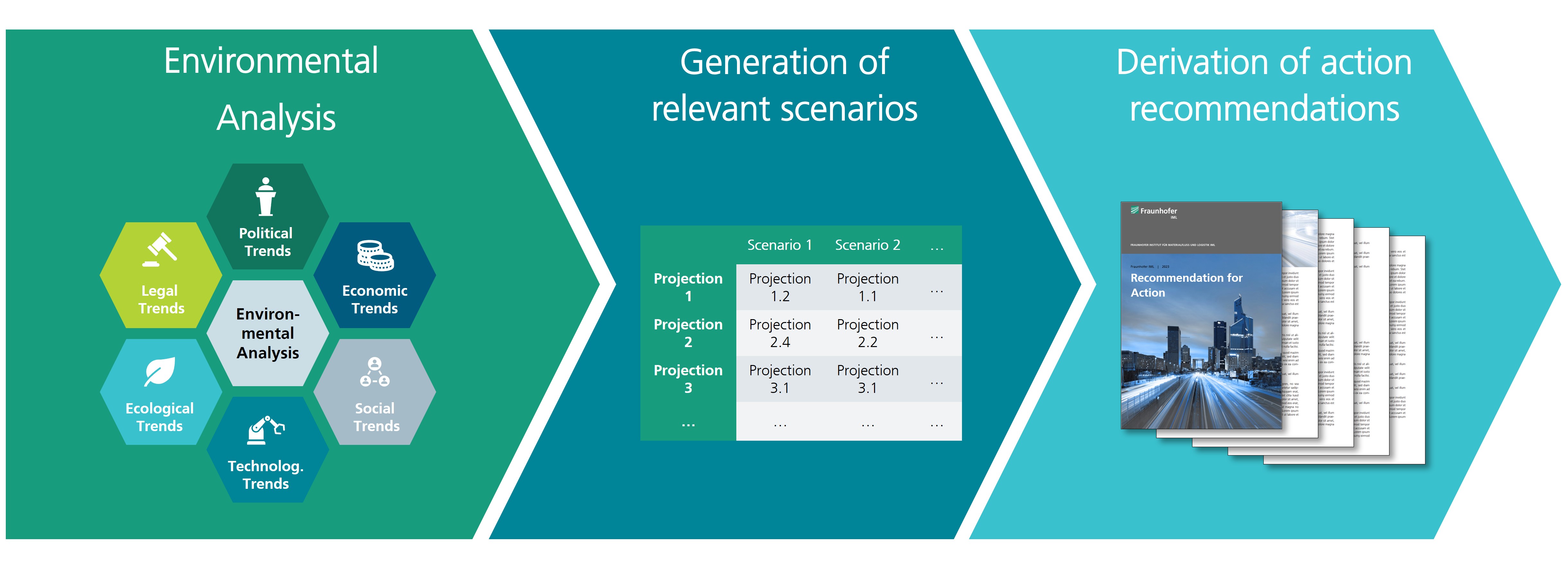Systematic Identification and Evaluation of Future Developments as the Basis for your Strategic Alignment
Shortages of parts, production outages, fluctuating demand: Recent crises such as the COVID-19 pandemic and the conflict in Ukraine have significant impacts on companies and their supply chains. They highlight the challenging environment in which companies must currently operate and show new requirements for supply chain management.
Factors such as crises, technological progress, sustainability, or changed political framework conditions offer opportunities as well as risks for companies in the production, distribution, and logistics sector. In order to ensure competitiveness, logistical processes must be transformed and designed to be resilient to future developments.

 Fraunhofer Institute for Material Flow and Logistics IML
Fraunhofer Institute for Material Flow and Logistics IML
